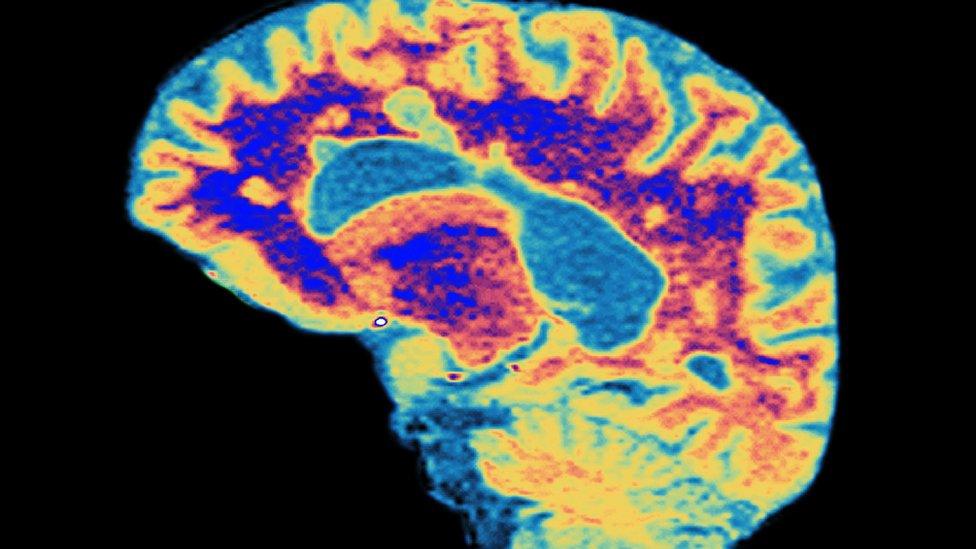Early MS scans 'can predict long-term prognosis'
- Published

Scans carried out when someone is first diagnosed with multiple sclerosis can predict their long-term prognosis, research has shown.
Magnetic resonance imaging (MRI) scans are already a key part of the diagnosis and management of MS.
But a 15-year study of people with clinically isolated syndrome (CIS), who can go on to develop MS, suggests they can also predict future disability.
The MS Society said more information would help patients' treatment choices.
The organisation, which funded the study in the journal Brain,, external added that knowing more about their condition would also reduce uncertainty for patients.
'You can live your life'
Dr Susan Kohlhass, director of research at the MS society, said: "For someone newly diagnosed, who gets a list of 14 treatments, who has no information about how their MS might develop, it's really complicated.
"We know the earlier you get treatment the better the long-term outcomes.
"So knowing early what type and what kind of disability you might have is really helpful in making decisions about treatment and lifestyle choices."

Melanie Ellis took part in the study
Melanie Ellis took part in the study, but not because it was going to tell her more about her own prognosis.
"I'd lost my vision in one eye and they asked me to take part - at the time I didn't even know I had MS. My view is if you can help and it isn't going to cause you any pain, go for it," she said.
Mrs Ellis, 53, from north London, was later diagnosed with relapsing/remitting MS.
She said if the long-term prognosis had been available, she would have wanted to know.
"Not everyone will want to know how their MS is going to turn out, but I'm the sort of person who likes to know.
"If you know what's going on you can at least deal with it, rather than sitting waiting for something awful to happen.
"If someone can tell you 'well this is the likely impact', it means you can live your life and plan for the future."
'More effective treatment'
More than 100,000 people in the UK live with MS. The condition affects everyday activities like walking, talking and eating, though everyone's condition develops differently and to differing degrees.
MRIs are already used to show if there is damage to the myelin sheath, the layer surrounding nerves in the brain and spinal cord.
In this study, specialists followed 164 people diagnosed with CIS - neurological symptoms which can, but do not always, develop into MS - for an average of 15 years.
Scans were also carried out one and three years after the CIS episode.
Prognosis was worst for those who had both inflammation in the brain and spinal cord damage.
And early spinal cord damage was also an indication that a patient would go on to develop the secondary progressive form of MS, which currently has no treatment and is where disability gets steadily worse.
However, early treatment can reduce the risk of developing secondary progressive MS.
Dr Wallace Brownlee, from the UCL Institute of Neurology, which carried out the research, said it showed that standard MRIs - available in every hospital - could help those newly diagnosed with MS make better informed choices about treatment.
"The way we treat MS right now is we put people on treatment and consider escalating or trying a more intensive treatment if it's not working.
"But with this, we might be able to identify people at the beginning which might mean a more effective treatment at the outset."
- Published20 February 2017

- Published11 July 2019

- Published22 December 2016
